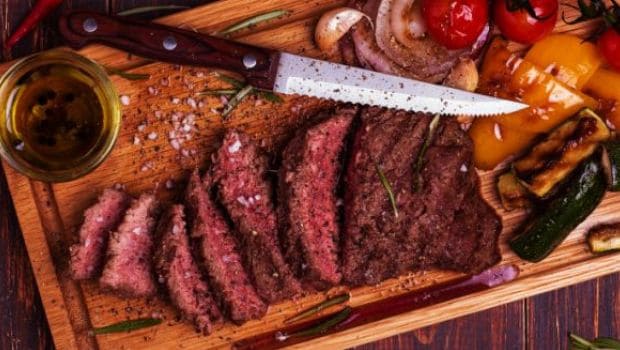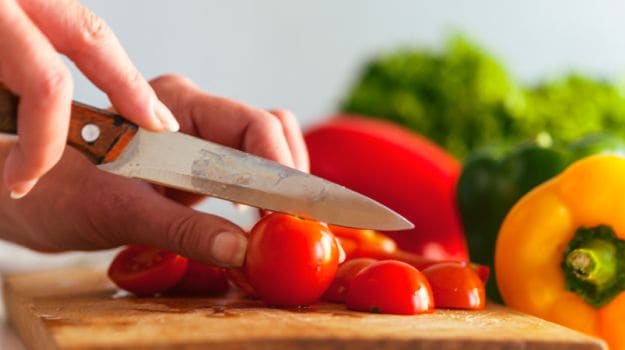According to a study published in the International Journal of Food & Science, using a blunt knife can cause unnecessary and unwanted damage to the nutrients; that is you are likely to increase the loss of electrolytes like potassium and calcium from your vegetables. Using a sharp blade can actually reduce the risk of bacterial growth and also excessive softening. It is always good to use a sharp knife to keep various nutrients of your vegetables intact.

using a blunt knife can cause unnecessary and unwanted damage to the nutrientsAccording to this study, risk of discoloration, dehydration and loss of nutrients tend to increase as the cut vegetables pieces get smaller. For instance, shredded lettuce, or cabbage may typically have a shorter lifespan. So, the more finely you chop your veggies, the more quickly you must consume it, considering it may have a greater risk of spoiling in a short span of time.
It is said that the total antioxidant capacity of the vegetables tend to increase when these vegetables are cut and sliced. Some of the antioxidants that may see a rise include jasmonic acid, systemin and salicylic acid; however, they lose out on some of the most important ones like vitamin C and carotenoids. Basically, when these vegetables are cut, they tend to respond by increasing the amount of certain antioxidants known as wound-induced phenols, but lose out on the important ones, which completely beats the purpose of eating vegetables.
Cutting vegetables may lose out on nutrients, but it is good to keep a few important things in mind; cut the vegetables with a sharp knife and do not finely chop your veggies lest they lose out on nutrients. If our do wish to chop them fine, then make sure you consume them as soon as possible.









